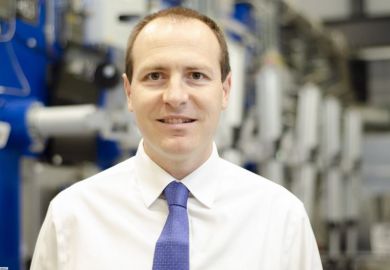Brexit means that there could soon be a “gold-rush mood” among European universities as they snap up UK-based academics, according to the secretary-general of U15, a club of the biggest research universities in Germany.
“UK institutions expect German universities...to be poaching UK-based staff soon,” says Denise Feldner in a recent article that asks whether Britain is facing a “mass academic exodus”.
Her comments are a further sign that other EU countries are looking to cream off academics who are now unsure of their careers in the UK, because of uncertainty over residency rights or access to EU research funding.
Germany’s Alexander von Humboldt Foundation is lobbying for extra funds to tempt scholars away from the UK, while the Republic of Ireland is also putting aside more money to attract researchers “in the context” of Brexit.
In the article for The Globalist, Ms Feldner writes that “the UK research system has changed significantly since the country became a member of the European Union. It is only in the last ten to twenty years that several UK universities have become the world-leading institutions they represent today.”
UK prime minister Theresa May has previously said she would “welcome agreement” on maintaining research collaboration with the Continent.
“The major challenge will be to find new common ground,” writes Ms Feldner. “At the moment, there is hope in Europe’s research community that the existing level of close ties in the research landscape will affect Brexit negotiations in a positive way.”
But she adds that there is “no precedent” for a new agreement, and notes that one “huge difficulty” is to balance “an EU research system mainly financed by taxpayers’ money and a British university system which, unlike that on the continent, is largely run like a private business”, pointing to the large sums of money UK universities make from international students.
Register to continue
Why register?
- Registration is free and only takes a moment
- Once registered, you can read 3 articles a month
- Sign up for our newsletter
Subscribe
Or subscribe for unlimited access to:
- Unlimited access to news, views, insights & reviews
- Digital editions
- Digital access to THE’s university and college rankings analysis
Already registered or a current subscriber? Login







